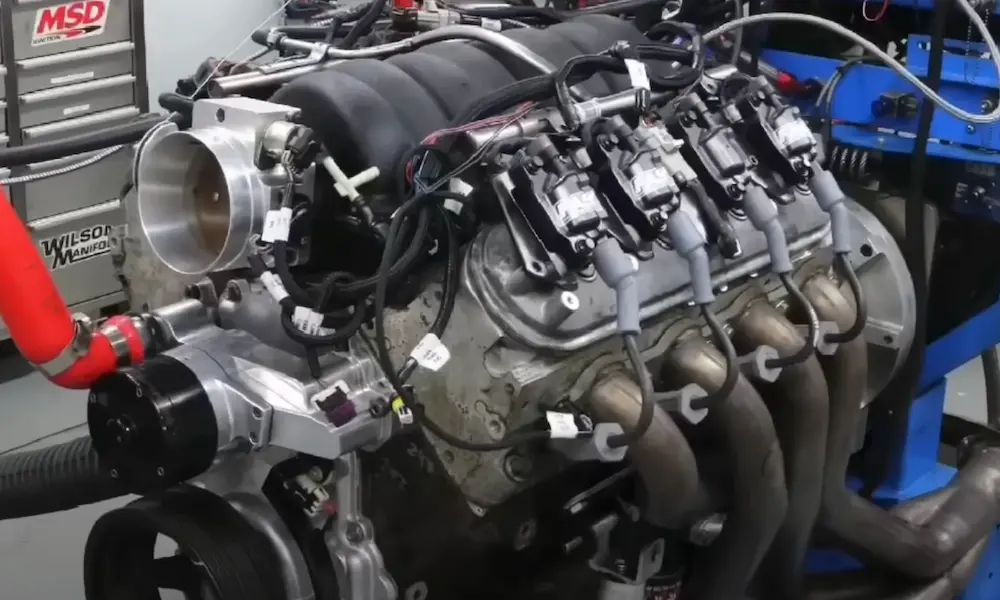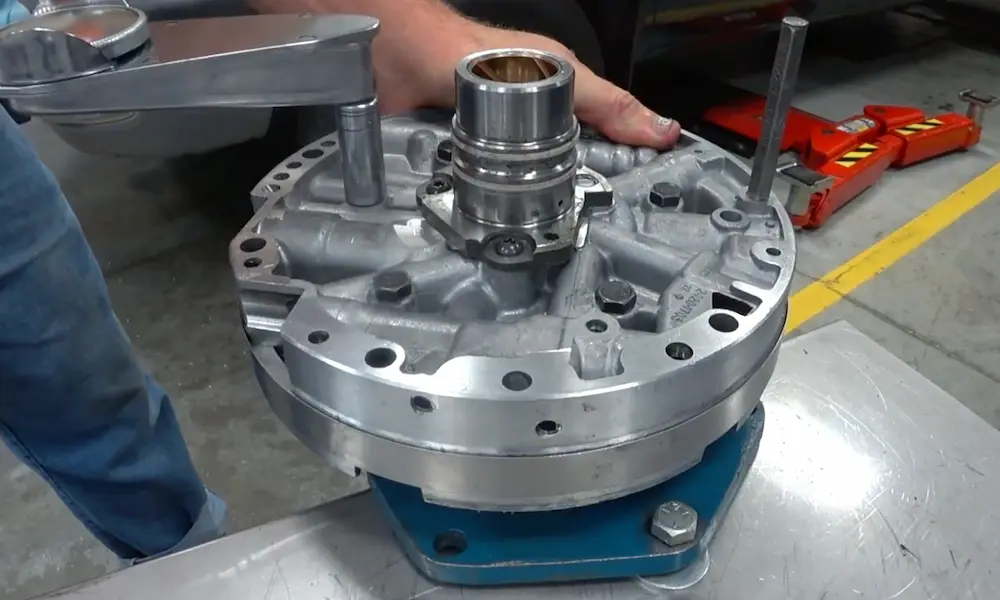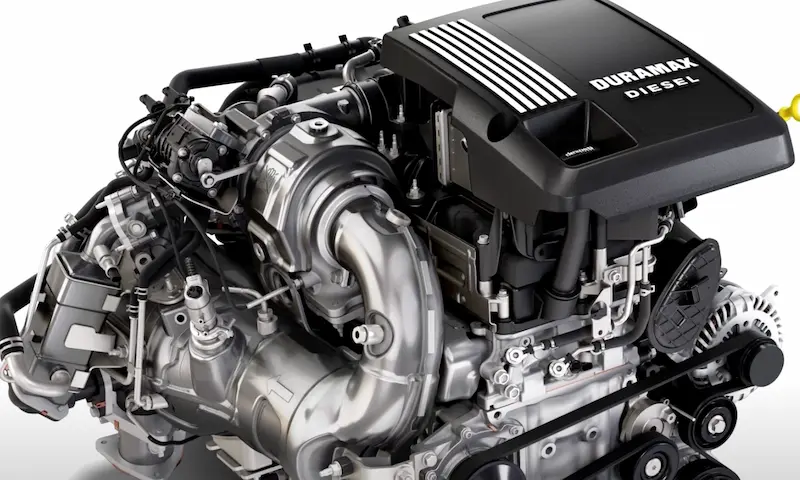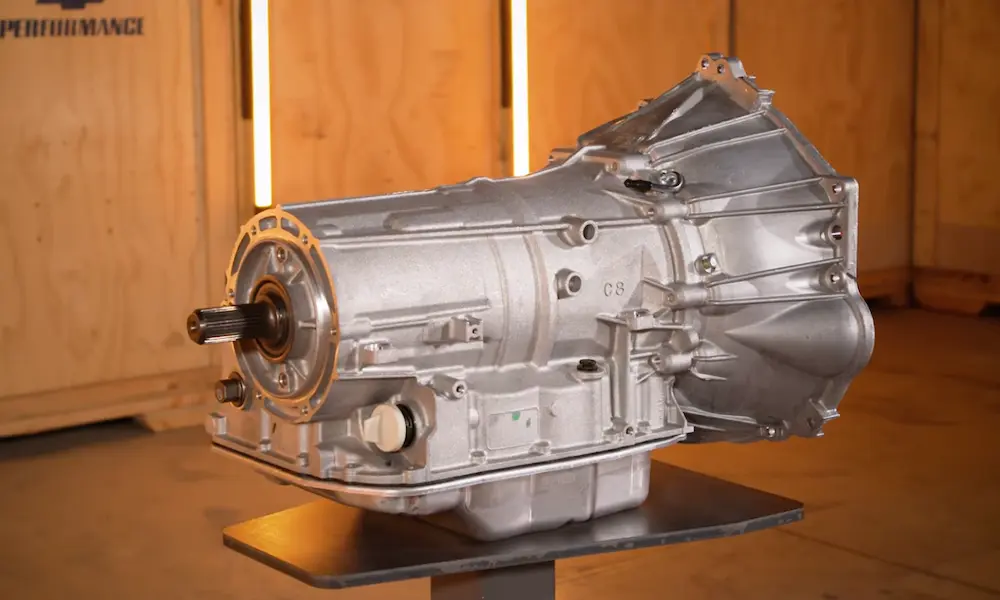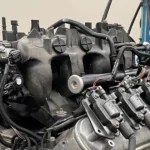If you’re considering the Chevy 2.7 Turbo Engine in the Chevrolet Silverado 1500 or GMC Sierra, you might be wondering about its reliability. This four-cylinder engine promises performance, yet it’s faced challenges like turbocharger failure and fuel management issues. Knowing these potential problems can save you from future headaches and help make an informed decision. Read on to learn more about how these issues might affect your vehicle.
Common 2.7 Turbo Problems
If you’re experiencing issues with the 2.7 turbo engine, it’s helpful to know about common problems like oil consumption, fuel system challenges, and turbocharger issues. Staying informed can help you address these challenges promptly.
Oil Consumption Issues
One of the key problems you may encounter with the Chevy 2.7L turbo engine is excessive oil consumption. Many drivers notice that their engine uses more oil than expected. This can be due to wear in the engine’s components, which leads to oil leaks or evaporation.
Checking your oil levels regularly is important. If you’re adding oil more frequently, you might want to inspect your engine for signs of leaks or wear. Keeping a close eye on oil consumption can prevent more serious engine damage down the road.
Fuel System Challenges
Fuel system challenges are another area where you might face issues with the 2.7 turbo engine. Some owners report problems with the high-pressure fuel pump or injectors. These components are crucial for ensuring that fuel is delivered effectively.
When the fuel system has issues, you may notice a decrease in power or an uneven engine performance. Addressing fuel system problems quickly can help maintain your engine’s efficiency. Ensuring that the fuel injectors are clean and functioning properly aids in preventing possible engine stalling.
Turbocharger and Air Intake Problems
Turbocharger failures can be a major concern with the Chevy 2.7L turbo engine. The turbocharger is vital for boosting engine power by increasing the air intake. Problems here may include reduced power or strange noises from the engine bay.
You might experience a turbocharger failure if you notice these symptoms. Regular checks on the turbocharger and air intake system, such as monitoring for leaks, can help keep your engine running smoothly.
Ignition and Misfires
Ignition problems and engine misfires can also occur with the 2.7 turbo engine. Misfires happen when the combustion process in the engine is not completed properly. This might result in rough idling or a noticeable loss of power.
To address this, keep an eye on your spark plugs and ignition coils. Regular maintenance checks can help identify worn-out components early on. Ignition issues not only affect performance but can lead to more serious engine problems if left unresolved.
Cooling System Concerns
Keeping your engine cool is essential, and the Chevy 2.7 turbo engine is no exception. Some users experience cooling system problems such as coolant leaks or issues with the head gasket. These problems can lead to engine overheating.
Watching for coolant levels and signs of leaks is vital. If you spot a coolant leak or notice the engine temperature rising, it’s important to investigate the cooling system. Addressing these coolant leaks prevents potential damage like head gasket issues or catastrophic failures.
Impact on Vehicle Performance
When you experience issues with the Chevy 2.7 Turbo engine, it can seriously affect how your vehicle performs. Key problems include reduced acceleration and power, less fuel efficiency, and challenges with reliability and durability, which can lead to costly fixes.
Acceleration and Power Loss
If your Chevy 2.7 Turbo engine runs into trouble, you might notice acceleration and power loss. This engine is supposed to deliver solid performance, but problems like turbocharger failure can cause poor acceleration. In severe cases, low engine power might even lead to stalling, which is not only inconvenient but potentially dangerous. As a driver, you rely on quick acceleration and consistent power for safe vehicle operation, especially on highways or steep inclines.
Fuel Economy Reduction
Another big concern is fuel economy reduction. The Chevy 2.7 Turbo is designed for efficient fuel use, but mechanical problems can throw that advantage out the window. When engine components don’t function correctly, they can strain the engine and cause it to use more fuel than usual. This not only impacts your wallet but also increases your environmental footprint, as it contributes to CO2 emissions. Staying on top of maintenance can help you keep fuel consumption in check.
Reliability and Longevity
Reliability and longevity are crucial, especially if you rely on your truck daily. Unfortunately, engine problems can shorten the engine life and make the vehicle less dependable. Issues like cracked engine blocks or injector failure can demand costly repairs and increase downtime. Regular maintenance and addressing issues early can help you preserve your vehicle’s durability. Over time, consistent care can enhance the engine’s reliability, allowing your truck to better withstand daily stress and mileage.
Solutions and Fixes
When dealing with the Chevy 2.7 Turbo, it’s crucial to focus on improving oil and fuel management, addressing turbocharger concerns, and resolving misfires and idling problems. Each area presents specific challenges and solutions that can enhance engine performance and longevity.
Managing Oil and Fuel Issues
To start, keeping your engine’s oil and fuel systems in check is vital. Consider installing an oil catch can. This device helps trap oil from the crankcase before it reaches the intake system. This can reduce carbon buildup and keep your engine cleaner.
Good fuel delivery is also essential. Regularly inspect and, if needed, replace the fuel injectors to avoid injector failure. Modern engines with direct injection can benefit from walnut blasting. This process cleans carbon deposits that accumulate over time, especially in engines like the Chevy 2.7 Turbo.
Addressing Turbocharger Concerns
Turbochargers are crucial for your Chevy’s performance, but they can face issues. Ensure you follow a regular maintenance schedule to avoid problems with the turbocharger. Pay close attention to any unusual sounds or performance drops.
Use quality oil to lubricate and cool the turbo. If you notice reduced functionality, check for leaks or blockages that can affect performance. Evaluate the piston rings, as worn-out rings can lead to oil leaks. Ensuring your turbocharger is in good condition will help maintain power and efficiency in your engine.
Resolving Misfires and Idling Problems
Misfires and idling issues can be frustrating, but they’re not uncommon in engines like the Chevy 2.7 Turbo. Regular checks are key to preventing these problems. Start with inspecting the spark plugs and ignition coils. Worn or damaged components should be replaced promptly to avoid further complications.
Also, keep an eye on vacuum leaks. They can cause rough idling and misfires. Checking and replacing vacuum lines as needed is a useful preventive measure. Regularly scheduled maintenance helps prevent these issues. By staying on top of these checks, you can enjoy a smoother ride with your Chevy 2.7 Turbo.
Technical Recalls and Service Bulletins
Understanding the technical recalls and service bulletins related to the Chevy 2.7 Turbo engine can help you address potential issues effectively. These documents provide insights into common problems and available fixes which might be covered under warranty.
Issued Recalls
You might be curious about any recalls associated with the Chevy 2.7 Turbo engine. As of now, there have been no official recalls for the Chevy 2.7L Turbo engine. However, if you face any problems that might seem like a safety issue, it’s a good idea to report them. This ensures that manufacturers stay aware and take action if necessary. Keeping an eye on recall announcements can help you stay informed about any future developments.
Service Advisories and Fixes
Technical Service Bulletins (TSBs) are vital for knowing about possible fixes for your Chevy 2.7 Turbo issues. These bulletins often address specific problems like engine stalling or rough idling, and sometimes they even cover faulty sensors. For example, GM has provided TSBs about the cooling system and rough idling. The good news is repairs may be covered under warranty, so check with your dealer for the exact coverage. If you’re experiencing vibrations, it’s worth looking into solutions offered in the service bulletins.
Maintaining Your 2.7 Turbo Engine
Keeping your 2.7 Turbo engine in top shape involves regular maintenance and careful attention to detail. Key areas to focus on are routine inspection, timely oil changes, and advanced maintenance tips, each of which plays a crucial role in extending the engine’s life.
Routine Inspection and Maintenance
Regular inspection of your engine can greatly improve its reliability. Start by checking for any leaks or worn-out parts. Examine the hoses and belts for signs of wear, such as cracks or fraying. Pay close attention to the coolant and antifreeze levels to ensure that your engine stays cool and runs efficiently. It’s also smart to keep an eye on battery connections and clean any corrosion.
Your engine’s air filter is another important component to check. A clean air filter supports better air flow and enhances fuel efficiency. Consider examining your spark plugs and wires for potential replacement if they show any signs of wear. Scheduling these routine inspections can prevent minor issues from becoming major problems.
Oil Changes and Fuel Additives
Oil changes are critical for maintaining your engine’s health. It’s advisable to change the oil around every 5,000 to 7,500 miles, depending on your driving conditions and oil type. Using high-quality oil is very important, as it helps in reducing friction and wear on engine parts. Make sure to replace the oil filter with each oil change.
Fuel additives can be beneficial, too. They clean the fuel injectors and aid in removing carbon deposits, leading to better fuel efficiency. Choose additives that are compatible with your engine’s needs. Using these products regularly can help maintain your engine’s performance and longevity while minimizing the potential for common issues like reduced fuel economy.
Advanced Maintenance Tips
For a more proactive approach to care, consider advanced maintenance. This includes using performance diagnostics tools to identify potential problems earlier. Performing this test can reveal hidden issues like turbocharger efficiency problems. Regularly updating your engine’s software is another effective way to maintain top performance and improve fuel efficiency.
If you frequently drive in harsh conditions, it’s advisable to replace the transmission fluid more often. Opting for preventive maintenance can stave off significant repairs down the line. Investing in quality Chevy parts and accessories for any replacements can further support your engine’s performance and longevity.



